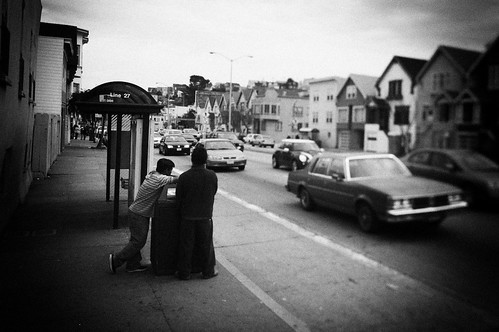[an atypical business-related post with due credit to the Telco 2.0 Blog, an excellent resource on the modern economics of telco]
I've witnessed this point argued again and again: at my current employer, my previous employer, and the one before that. Telcos are greedy; telcos sell "unlimited data" but deliver otherwise; telcos will lose the broadband market to a player who can offer better value; and so on. Definitely I'm not defending misleading marketing of broadband services, but claiming that telcos are on a mission to exploit consumers falls short of the mark.
It's really not as simple as that.
The problem the telcos have is this: their costs building and running a packet-switched network are fundamentally a function of data volume on that network, (# of bits transported) * (cost per bit). As a first-order approximation, this linear function works pretty well; in this simplified model the cost per bit is an aggregation of OpEx and CapEx (amortized). CapEx includes licensing wireless spectrum, building out towers and backhaul and so on.
Telco costs are a function of data transport volume, more or less.
So you might be tempted to think that a "cost-plus" pricing model is the answer: charge the consumer per transported bit (ie. a metered data plan) at a rate of X * (cost per bit), where X>1. In general these pricing plans don't work well because on the consumption end what users end up paying doesn't correlate with the value they're getting. Is watching that YouTube video on my iPhone 100x more valuable to me than downloading that email from my boss? No, but it might cost me 100x more. Consumers can't make sense of that, and metered data plans haven't worked for the industry.
Consumer value is not a function of data transport volume.
So the telcos move to a subscription-based pricing model, otherwise known as flat-rate. Here they charge you a monthly fee for access to the network but typically give you "unlimited data" along with that. This is easy for consumers to understand, avoids the problem of data value being independent of data volume, and everything works just fine... EXCEPT that now the telco's revenue is a function of (# of subscribers) while their costs are a function of (# of bits transported).
In a subscription-based world, telco data costs and revenues are decoupled.
Having your revenues decoupled from your costs is a dangerous situation to be in, because you could easily find yourself paying out more money than you're taking in. So you try a few things:
- you place a cap on the "unlimited data", to control how far revenues can deviate from costs and keep your margins positive. Providers are in general moving this way.
- you start throttling traffic, for the same reason
- you start looking at ad-supported models, inserting X ads per bit transported, to couple revenues to costs again
- you start looking for a way to make your costs independent of traffic but instead a function of the number of "unlimited data" subscribers
After the launch of iPlayer in the UK (iPlayer is the BBC's streaming media product), one major ISP revealed that their costs of carrying streaming traffic trebled within weeks. Unless they can pass those costs to consumers, or fund them some other way, or prevent them entirely, they'd be in trouble. Bad news when your costs treble and your revenues don't.










